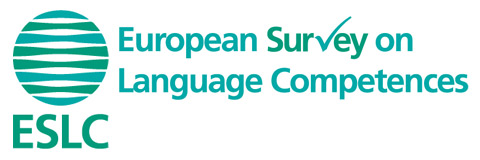European Survey on Language Competences (ESLC)
- Published on Monday, 05 December 2011 08:26

The European Survey on Language Competences (ESLC) is a European Commission research project. The purpose of ESLC is to provide participating countries with: 1) comparable data on the language proficiency of secondary school students and 2) information about good practices in language learning and teaching which can shape language policy both within participating countries and across Europe.
.The survey has tested the two most widely taught European languages (from English, French, German, Italian and Spanish) in each country from a representative sample of pupils in their final year of lower secondary education or the second year of upper secondary education. The ESLC has assessed students’ proficiency in listening, reading and writing, test results are related to the Common European Framework of Reference (CEFR).
To obtain information on how demographic, social, economic and educational variables affect language proficiency across the member states, students were asked to fill in a questionnaire about their language learning and other background factors. Three more questionnaires – for language teachers, school principals and National Research Coordinators which focused on those aspects of educational policies, language policies and language teaching methods that may have varied among regions and countries will help to identify the areas of good practice within foreign language teaching.
A full field trial of the survey took place between February and March 2010 and the main study took place between February and March 2011. The final report will be delivered to the European Commission in the first half of 2012.







